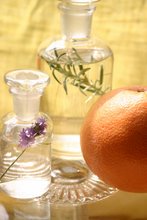Aging Boosts Chances That A Family Line Will Be Long-lived EurekAlert 3/13/07 "Scientists have puzzled over just why organisms evolved aging as a strategy, and now there appears to be an answer. Allowing one individual to carry all the cellular damage inflicted over time, rather than dividing it between two organisms during reproduction, increases the chances that the individual's line will continue to reproduce for many generations to come...The earliest organisms, single-celled creatures called prokaryotes, which include bacteria, probably did not age but rather divided damaged material equally among new cells. There was not a parent cell, but rather the original cell divided into two siblings that were, in effect, the same age and shared the damage from the original cell equally...Somewhere along the way, that strategy changed so that a parent cell retained most of the damage from aging and the offspring started with a mostly clean slate..."The idea is that the damage has a constant effect on the fitness of the offspring, but if the damage is concentrated in one individual then a lot of damage will be eliminated from the lineage when that individual dies," said Carl Bergstrom, a University of Washington associate professor of biology...Aging is essentially a decline in reproductive rate and an increase in mortality over time, based on changes in tissues, cells and cellular structures. Those changes can include damage to DNA or damage to cellular material or even organs...Symmetric reproduction favors a longer life for an individual, but eventually the damage is likely to be so great that a particular line will no longer be able to reproduce. Asymmetric reproduction likely means a shorter life for an individual in exchange for the likely greater longevity of the line."
Much more in this interesting article at EurkeAlert.
lead author is Martin Ackermann
To complicate this matter this study on E-coli reveals that even "symmetric reproduction" is in a way asymmetric - "We conclude that the two supposedly identical cells produced during cell division are functionally asymmetric; the old pole cell should be considered an aging parent repeatedly producing rejuvenated offspring. These results suggest that no life strategy is immune to the effects of aging, and therefore immortality may be either too costly or mechanistically impossible in natural organisms."
DogVitals antioxidant supplement for your dogs health
Subscribe to:
Post Comments (Atom)

No comments:
Post a Comment